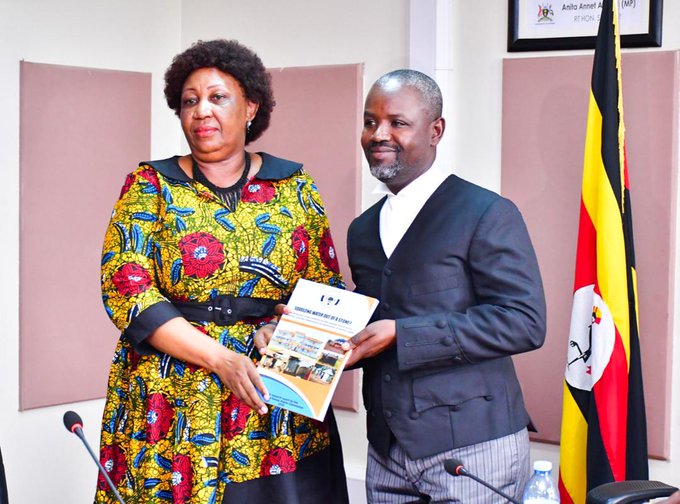
The Uganda Human Rights Commission (UHRC) has revealed that police officers in Uganda are living in extremely and unimaginably deplorable conditions, where some officers are sharing rooms that are only separated by curtains.
The remarks were made by Wangadya Mariam, the Chairperson of the Commission, while handing over a report to Deputy Speaker Thomas Tayebwa at Parliament on the research conducted on the welfare of the Uganda Police Force on February 8, 2024.
According to UHRC, the research is titled “Squeezing Water out of a Stone? Working and living conditions of Uganda Police Force personnel and their implications for observance of human rights”
Wangadya defended the title of the research, arguing that Uganda’s police personnel are giving a lot more than they are receiving.
“It was amazing how, in their given conditions, they could still manage to provide any service. At times they had to share guns, ask complainants to transport officers, use “wanainchi” (civilians) to carry accident victims, use ropes in lieu of handcuffs, walk with suspects to court in the absence of vehicles, and use observation to detect crime in lieu of required gadgets, among others. Nevertheless, some of their strategies were found to be high-risk with a likelihood of causing or promoting human rights violations,” Wangadya said.
Wangadya said the research found that generally, the living and working conditions of UPF personnel were wanting, and in some cases, they were at extreme, unimaginable levels.
“The situation of housing and accommodation in UPF is dire, with institutional accommodation largely dilapidated, comprising shared rooms partitioned by either curtains or makeshift boards, and condemned structures and uni-ports unfit for human habitation,” she remarked.
Wangadya added that many police officers lived between 3 to 8 kilometers away from their workstations, while 3% lived more than 8 kilometers away, even up to 14 kilometers, and that despite this, the administration of Uganda Police did not facilitate their staff with organized transport to and from work, yet they were on call 24 hours a day.
She further revealed that the most affected are junior personnel, as they are displaced by seniors.
“Junior personnel are the most disadvantaged in terms of acquiring decent housing, as they are often displaced from institutional accommodation by senior personnel. Some personnel opt to live in their homes or voluntarily rent outside institutional accommodation, but these face concerns about their personal security outside the barracks as well as the affordability of decent housing that maintains the corporate image of UPF,” Wangadya added.
During the thanksgiving ceremony for the security agencies for maintaining peace and security during the 19th Non-Aligned Movement Summit (NAM) and the Third South Summit of the Group of 77 and China (G77+China), President Museveni, who is also the Commander in Chief of the armed forces, said that it’s not a good idea for security personnel to stay in rentals and directed the police and prison to not only build for senior officers but to also build for junior security officers.














